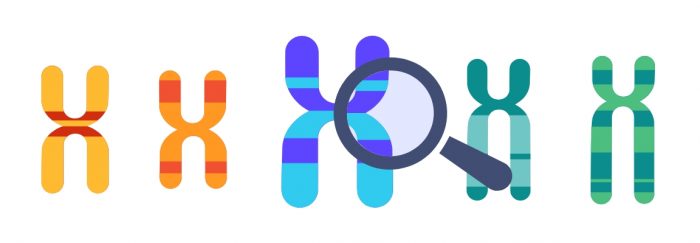Before delving into the topic of the effects of drugs on people, the basic, always, is to define what we are talking about. And in science, half the time this is more complicated than it seems. We are very bad at words.
In some sources, a drug is defined as those bioactive molecules that can interact with protein macromolecules. Other definitions are at the same time more and less specific, and decide that a drug is a chemical substance that causes psychological and/or physiological changes in the organism. Another way to define them is as known structure chemical substances that, when administered in a living organism, produce a biological effect.
And then they add an additional point: they are substances that do not provide nutritional support. This way we can differentiate them from food. And drugs are also different from medicines. A medicine is a drug used to diagnose, cure, treat or prevent a disease. That is, all medicines are drugs, but not all drugs are medicines.
We can also understand medicines as drugs where their therapeutic benefit has been maximized and undesirable side effects have been reduced to the maximum. The difference between a compound refined in a laboratory or you starting to suck it from the root of the source plant.
Depending on the interpretation, that dubious origin alcohol you have been drinking on Saturday might be a drug and food (alcohol has a high caloric intake) but nobody would call it a medicine.

Infinite reactions to the same drug
Throughout our lives we consume different drugs (or medicines, feel free to choose the noun you want) to treat pathologies. If we live long enough, it’s likely that we’ll swallow medicines daily just like a child eats candies. Discovering why some drugs make us feel bad can be key to prescribing a more effective treatment.
Because not everyone reacts the same way to the same medication. Well, people react differently to peanuts or milk, it’s normal that a pill with a seven-syllable name affects them differently. This is handled by pharmacology, the branch of science that studies, well, drugs.
And within this science there is a section called pharmacodynamics, which studies the changes that a drug causes in the body. If you think about all the changes a chemical substance can cause in different tissues and its evolution over time, you’ll understand that it’s a very, very complex section. Especially, if you think that these effects are different among people.
And now let’s add pharmacogenetics. Pharmacogenetics studies how genetic differences between individuals condition different responses to the same drugs. Genes condition everything in our life, the effect of medications was not going to be an exception.
Here we have the answer that interests us to the question. Why do some drugs make us feel bad? Because no one is 100% identical to another person. Except for twins. That’s why geneticists love twins. Getting back to the topic, our genes can make our response to a medication abnormal, if we don’t present the common variants.
Knowing a person’s genetic variability is going to help prevent the toxicity and therapeutic inefficacy of a pharmacological treatment. Even though all drugs have side effects, we don’t have to suffer from them, or at least not with the same intensity. If a drug is making us feel bad, it may be due to a genetic variability that intensifies the toxicity of the drug or alters the body’s response to the chemical.
Although it is a science that has been strongly boosted in recent years, it is not new knowledge. Some consider that the first record of “pharmacogenetics” was in 510 BC, when Pythagoras noted that in some people the consumption of beans had harmful effects. And it turned out to have genetic causes, they were people with the mutated G6PD gene, and therefore a deficiency of the enzyme.
Usually when a drug has harmful effects on an individual far beyond the rest of the population, there is a mutated gene, or several, that encodes a protein that collaborates in one of the following functions: enzymes that metabolize the drug, transporters of the drug, the drug’s own target protein, or the immune response.
The immune system shares something with genes: it wants to participate in everything. Even the bad stuff.
Pharmacogenetics, a pillar of personalized medicine
No one doubts the role of genetics in medicine. For this reason, pharmacogenetics is considered an indispensable pillar within personalized medicine. And it doesn’t even have to be individualized to yield benefits. Many groups share genetic similarities that can be leveraged in treatments. We know that it is more common to find lactose intolerance in Asians than in Westerners, so of course there are drug intolerances with different frequencies depending on the populations.
The advantage for the individual, and by extrapolation, to society, is not only health-related. Shortening treatment times and the amount of medication used means a reduction in the economic cost per patient. Personalized medicine is healthier and cheaper. Imagine being able to predict the specific effects of a long-term treatment on a patient based on their genes, without needing to resort to trial and error. That’s why pharmacogenetics and personalized medicine have been gaining more interest in recent years.
But, how can we obtain this information? By conducting a DNA test in which pharmacological compatibility is analyzed. Most genetic analyses that study these interactions focus on efficacy, dosing, and adverse reactions. So, we would be talking about moving into individualized medicine therapy and pharmacogenetics.
Thanks to this information, it can be known, for example, if a person metabolizes a drug in an ultra-fast, fast, intermediate, or slow manner. That is, if the drug spends more or less the appropriate time in the body to perform its function. So, if a person metabolizes a drug ultra-fast, they will need a higher dose of the drug so that it circulates in greater quantity and for longer in the body. Your enzymes are too good at doing their job.
Today we have reached the point where we can even get an idea, not only of the interaction of the drug with our body due to genes, but of the interaction of several different drugs in our body due to our genes.
When taking medication for a chronic disease, it becomes substantial to know these aspects, diseases that accompany us throughout life and that often involve treatments with several different medications. Sometimes one of these drugs has, paradoxically, the function of treating the adverse effects of the others.
It’s a fascinating science, of which we already know a lot, but it’s still not enough. The idea of being able to predict, like magicians, all the effects that drugs will have on a person, and deciding which is the best route, sounds almost like science fiction. And one day we will completely get there. For now, we can give you a sneak peek. With the Advanced DNA kit, we can advance, for example, the effects of acetylsalicylic acid on your body. “But I don’t take that.” It’s aspirin. Everyone takes aspirins.




